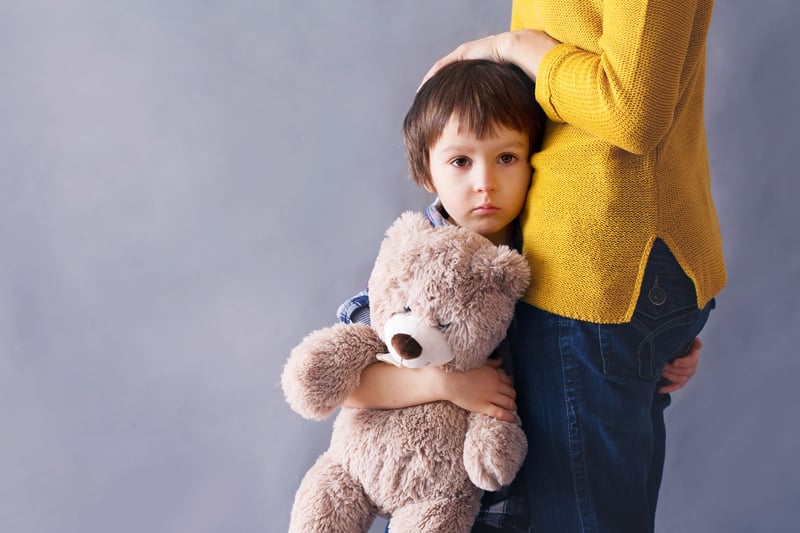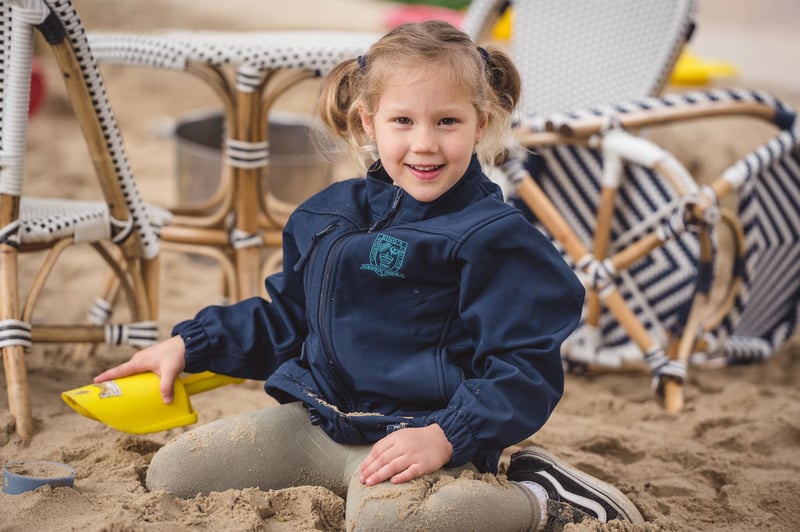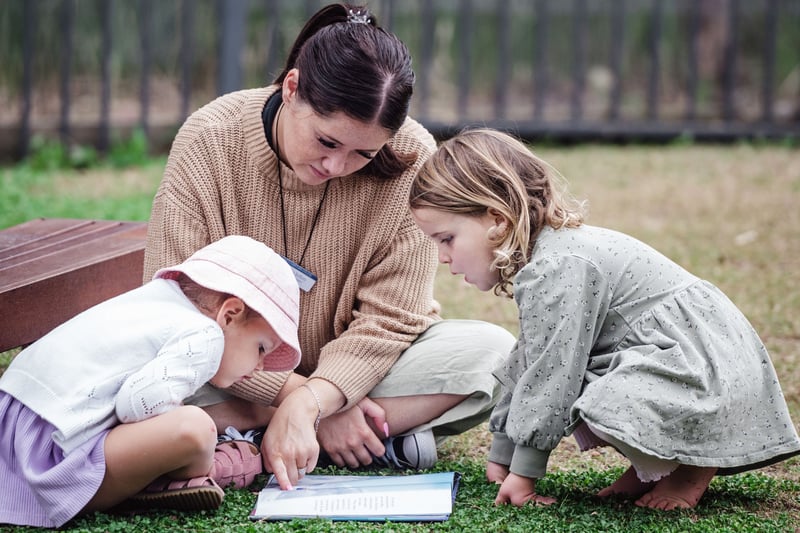
Saying goodbye is never easy. Particularly on the first day of school. Excitement, apprehension, tears and clinginess are perfectly normal responses for the child beginning Prep. But no-one wants to leave their child sobbing and distressed with their new teacher.
Your child's separation anxiety will usually have its roots in one or a combination of the following:
- Fear of the unknown
- Fear of change
- Lack of control / choice
- Shyness / lack of confidence
- Little concept of time
Here are some tips to help smooth the transition:
Preparation is key
Your child needs to feel ready for school (e.g. able to dress themselves and go to the toilet on their own) and have an idea of what to expect.
- Most schools run Prep Orientation and/or ‘Meet the Teacher’ days in advance of the new intake. These are usually voluntary but make sure that you and your child attend to help familiarise your child with the school environment and culture.

- Some schools have playgroups that meet on the school campus. These provide an excellent opportunity for your child to become familiar with the school surroundings.
- Organise play dates with other children starting school the same time as your child.
- Get your child used to spending time without you – e.g. with grandparents or attending a sports class.
- Have fun playing ‘school’ together (this can be a fascinating insight into what your child is anticipating!). Read books to them about starting school and discuss the storylines.
- Give your child a practise run of getting dressed in their school uniform and check that they can cope with all the fiddly zips, buttons and laces. Make sure that they can go to the toilet independently in their new clothes.
- Take the journey to school together a few times and show your child where they will enter and where you will pick them up.
- Go over the school routine with your child so that they know what to expect. Little children have no real concept of time so saying "I'll be there to pick you up at three o'clock" is meaningless. Outline a distinct beginning, middle and end, with checkpoints that punctuate the day (such as morning tea and lunchtime).

Be confident…
An anxious parent makes for an anxious child. Children pick up on their parents’ stress and fears. Be positive and reassuring about your child’s new school adventure. Show that you trust their teachers. Be excited to find out about their school day.
…but acknowledge their emotions
Children need to feel that their emotions are valued. Saying things like “Don’t be silly” or “There’s nothing to worry about” may make them think you don’t understand. Show empathy: “You’re finding this a bit scary, right?”, “I can see you’re worried about leaving me”. Explain that it’s okay to feel that way and that you will miss them too.
Problem-solve together
Learning how to deal with anxiety is an important part of growing up and building resilience. Identifying the cause of your child’s concerns and helping them develop strategies to deal with them is more valuable than soft-soaping them with promises that everything will be fine. Try leading questions such as:
“I can see you’re a bit nervous. Why do you think you feel like that?”
“Can you think of anything that would make this easier?”
“What could you do if that happened?”
They may surprise you with solutions of their own.
Teach them how to ask questions
One of the scariest things for small children is not knowing what to do or who to turn to if they have a problem. Role-play or talk through some scenarios with your child to prepare.
Fuel them well
An early bedtime, a good breakfast and plenty of time to get ready on the big day will reduce unnecessary stress caused by over-tiredness, hunger and rushing.
Take a small comfort toy
Some children find it comforting to take a familiar toy or object from home with them. Not all schools allow children to bring in their plushies but a small toy or trinket that can fit in their pocket - or a piece of velvet or ribbon - may have a calming effect.
Plan a small treat for after the first day of school
Give your child something to look forward to, e.g. a trip to a playground, an ice-cream or a favourite meal at home.
Prepare for farewells
Your child's school will have given you an indication of what happens on the first day - where to take your child, at what time, how long you can stay etc. Make sure you have gone over this with your child before you set out for school so that they can mentally prepare for the final farewell. You may be allowed into the classroom with your child to see where they will sit, meet the teacher again and say hello to other parents and children. Take advantage of all these opportunities and, whatever your own emotions, stay positive, calm and interested in your child's new environment. E.g. "Can you find the desk with your name on it?", "Wow, what a lot of blocks. What could you build with those?", "Let's say hello to that little boy and find out his name".
Establish a goodbye routine
When it is time to leave, a hug, a kiss and an "I love you. Have an amazing day. I can’t wait to hear all about it” should suffice. A lingering parent can escalate a child’s anxiety.
And if they cry ...
Try not to get upset or emotional. The vast majority of children will stop crying soon after their parents have left. Starting school is a major milestone in your child's life but an important step in growing up and developing resilience. The tears will pass. Your child's teacher will be prepared for emotional children on their first day of Prep and have strategies in place to distract and reassure them.
Debrief gently
Your child may be exhausted at the end of their big day. Try not to overload them with questions but give them time and attention and show interest in all that they share. You may find them are more willing to divulge details after they have had time to wind down - possibly after a bedtime bath and book.











